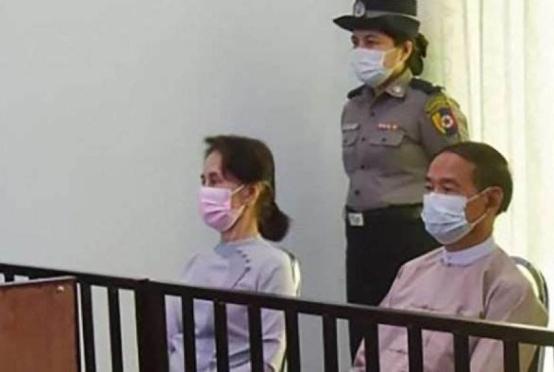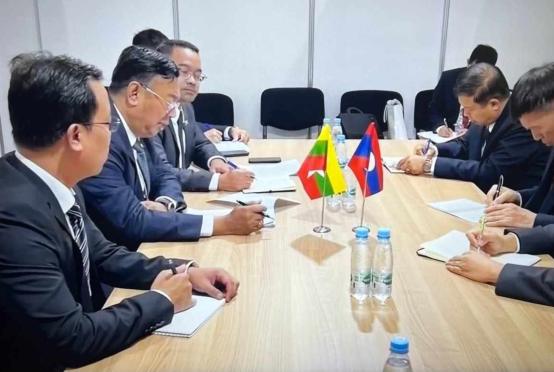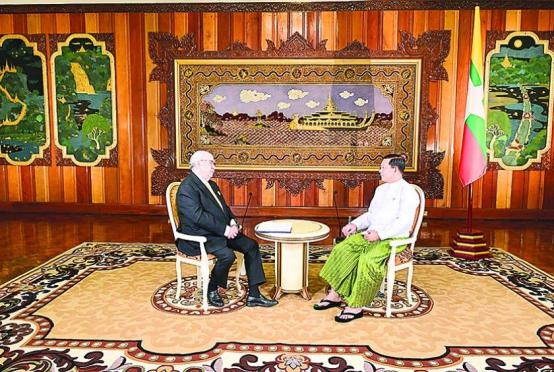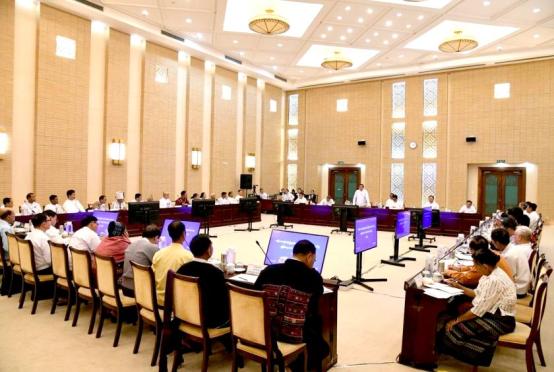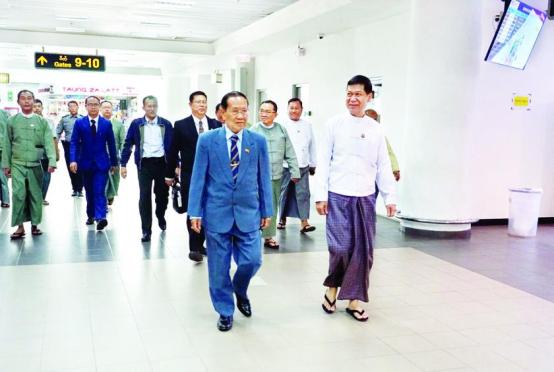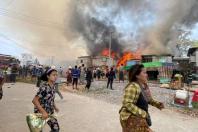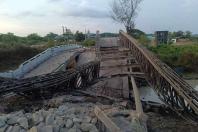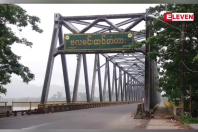Rival regional and international powers with their own global agendas, competing to control the Indian Ocean, have entered Sri Lanka in view of its great strategic importance. This includes China, India, United States, its European allies especially United Kingdom and France, Russia and Israel.
They all have their own agendas, often detrimental to the interests of this country. Thus the once peaceful Sri Lanka has become a playground for all these forces. The question is the impact of their presence in the island and the forthcoming presidential elections on November 16.
It is common knowledge that all these powers would like to have a president and a government friendly to them, whom they could manipulate to suit their agendas. Thus, the competition to influence the elections to suit their interests. Under such circumstances one cannot say that presidential or general elections will be free of foreign influence.
While the US and its partners spend billions on wars to plunder resources while talking human rights democracy and freedom; China, instead of wasting resources on wars, established close economic ties with countries in the region, Africa and beyond.
This rivalry has been growing in the Indian Ocean making Sri Lanka a much sought after country, with their presence and its positive and negative impacts on this country.
In the present political environment, where liberalism and independence undergoes deep and vast changes for a small but strategically important country like Sri Lanka to preserve and foster its independence through overhauled political thinking and economic planning is extremely delicate.
Inevitably Sri Lanka has come under a wide range of political influence and it is no more an independent country as it was during the 1960s and the first half of 1970s.
Sri Lanka which was a pillar of strength for the Non-align Movement is now in a delicate position to keep a safe distance from rival world powers. So far Sri Lanka seems to play a balancing act to be in good books with both sides, without a principled political vision.
In the aftermath of Sri Lanka’s ethnic war in May 2009, China was quick to enter the scene and establish a firm foothold in the country, while the Indian involvement in the ethnic crisis remains fresh in the minds of Sri Lankans.
The United States, which maintains military bases all over the world and busy with its global wars, is here with its both military and economic agendas. According to a newly published document of Pentagon on Indo-Pacific strategy, it is clear that it intends to establish and maintain dominance over the Indian Ocean, through which a significant share of global commerce and energy trade traverse, in order to contain China.
Hence renewed US efforts to enter into military agreements with countries in the region became an important policy drive.
To counter American moves to contain China's trade with countries bordering Indian Ocean, Chinese leadership launched an ambitious multi-billion investment project - 'Belt and the Road Initiative' (RBI), a modern day silk route extending from China to almost every European country.
There are plans afoot to extend this project to Africa through Middle East. It is evident the RBI project not only promotes trade and investment along its pathway, but is also to safeguard and secure its major supply routes of most essential raw materials feeding the ever expanding industrial base.
According to their calculations, the harbour built with Chinese aid at Hambantota in Sri Lanka, is one of most precious pearls in that string. Sri Lankan government burdened with massive debt repayment difficulties had to ultimately lease the port and a vast land area adjoining the port to China, confirming the worst fears of US and neighbouring economic and military giant, India.
To counter the Chinese move, India and Japan sponsored Asia Africa Growth Corridor (AAGC) to foster and promote economic and communication relations among the countries bordering Indian Ocean. But India or Japan did not come forward to offer a convincing economic and financial support package to rival the Chinese initiative.
However, India is more apprehensive about Chinese investment in Sri Lanka. When Hambantota port was leased to China, India renewed its demand for the lease of more expansive natural harbour at Trincomalee and adjoining oil tank farm, to counter Chinese presence in the island. In the same vein when the Sri Lankan government decided to go ahead with Chinese-funded Port city project to the west of Colombo port, India and Japan entered into negotiate with Sri Lankan government to develop and maintain the east jetty of Colombo harbour.
Rivalry among big powers to gain a foothold in Sri Lanka has tremendously increased in the new and more dangerous cold war environment.
Japan, which plays a subsidiary role to American economic and military influence in the newly coined Indo-Pacific area, recently signed a five year joint comprehensive partnership agreement with Sri Lanka, as an extension of the development plan of the island nation. A key element of the agreement is maritime cooperation between two countries.
In another development in the international political scene since the collapse of the former Soviet Union in 1979, the international political scene has undergone radical changes with new alliances bringing once sworn enemies together.
For example there is a new axis which includes US-European Union especially the United Kingdom and France, Russia, Israel and India. They have a common agenda of hatred towards Muslims. They waged wars and destroyed many Muslim countries in the Middle East, killed millions of Muslims and unleashed a global anti-Muslim campaign to justify their wars.
This global anti-Muslim campaign entered the island under the Rajapaksa regime, when it opened the country to Israelis and India’s Hindutva forces who have established close ties with government backed local racist forces.
However the global Islamophobia entered the island with all its ferocity in the wake of the Easter Sunday bombings and killings on April 21.
Meanwhile, extreme right wing militant Hindus working tirelessly to eliminate Muslims in India, have also entered Sri Lanka with their Hindutva agendas during former President Mahinda Rajapaksa’s regime. This trend continued during President Maithripala Sirisena’s government with greater intensity, virtually destroying Muslims who voted Maithri-Ranil government to power.
Under the guise of promoting Hinduism, these militant outfits, have been implementing a common campaign of eliminating Muslims from India. Most prominent among them were Rashtriya Swayamsevak Sangh, RSS, its deceptive political front Bharatiya Janatha Party, BJP, Siva Sena, Vishwa Hindu Parishad -VHP, and Bajrang Dal.
Indications are that these organizations have established their links with local racist outfits and are working towards achieving their common agenda against Muslims.
On the other hand, Sri Lanka’s growing ties with Israel have also become cause for serious concern among the Muslims, who always fear that this may spell disaster for communal harmony, in view of Israel’s extreme hostility towards Muslims.
It is in these contexts that one needs to view the forthcoming presidential elections.


